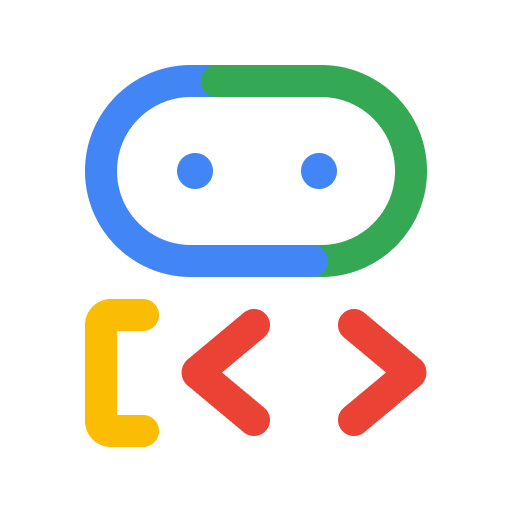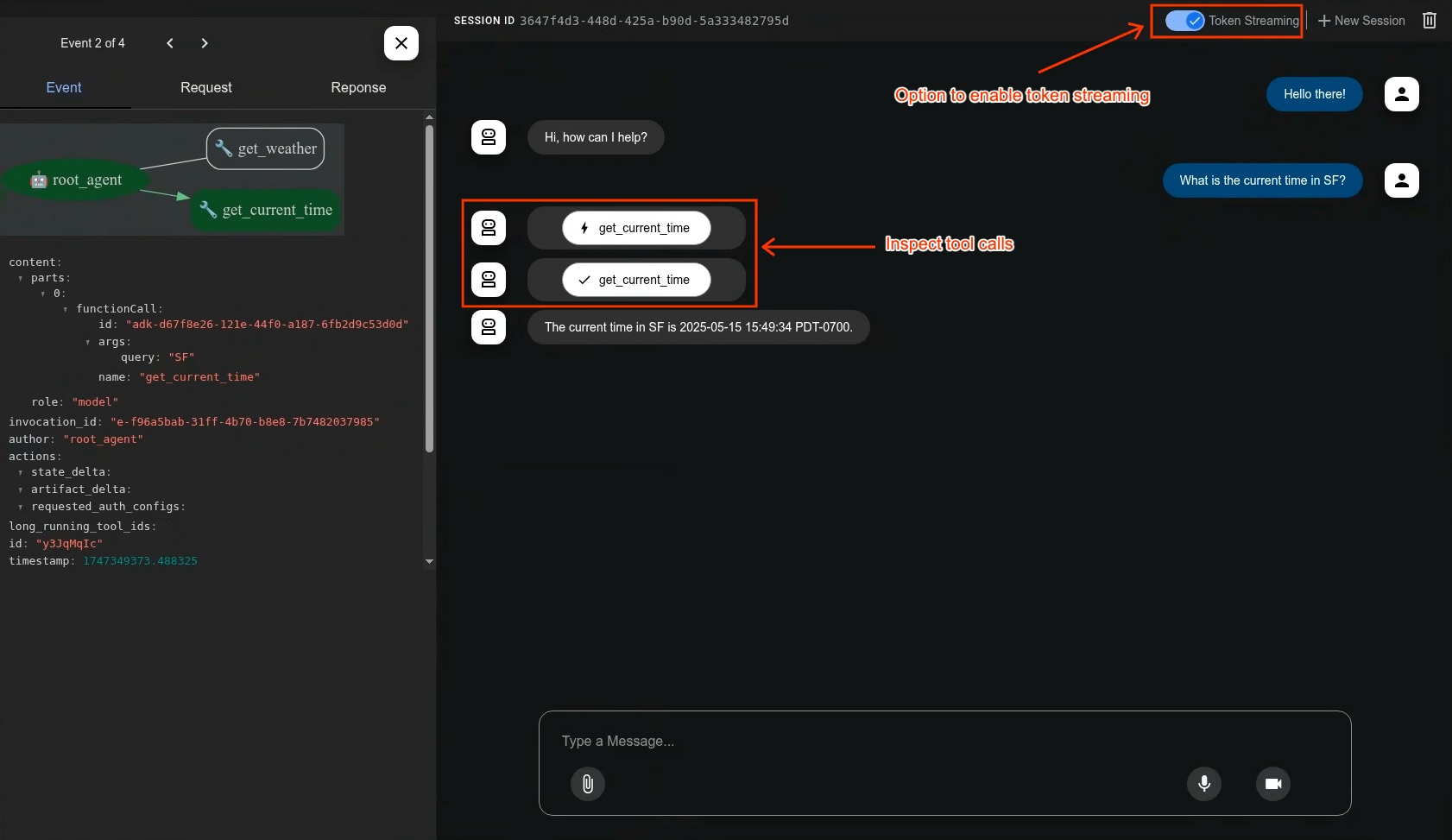An open-source, code-first Python toolkit for building, evaluating, and deploying sophisticated AI agents with flexibility and control.
Agent Development Kit (ADK) is designed for developers seeking fine-grained control and flexibility when building advanced AI agents that are tightly integrated with services in Google Cloud. It allows you to define agent behavior, orchestration, and tool use directly in code, enabling robust debugging, versioning, and deployment anywhere – from your laptop to the cloud.
-
Rich Tool Ecosystem: Utilize pre-built tools, custom functions, OpenAPI specs, or integrate existing tools to give agents diverse capabilities, all for tight integration with the Google ecosystem.
-
Code-First Development: Define agent logic, tools, and orchestration directly in Python for ultimate flexibility, testability, and versioning.
-
Modular Multi-Agent Systems: Design scalable applications by composing multiple specialized agents into flexible hierarchies.
-
Deploy Anywhere: Easily containerize and deploy agents on Cloud Run or scale seamlessly with Vertex AI Agent Engine.
You can install the latest stable version of ADK using pip:
pip install google-adkThe release cadence is weekly.
This version is recommended for most users as it represents the most recent official release.
Bug fixes and new features are merged into the main branch on GitHub first. If you need access to changes that haven't been included in an official PyPI release yet, you can install directly from the main branch:
pip install git+https://github.com/google/adk-python.git@mainNote: The development version is built directly from the latest code commits. While it includes the newest fixes and features, it may also contain experimental changes or bugs not present in the stable release. Use it primarily for testing upcoming changes or accessing critical fixes before they are officially released.
Explore the full documentation for detailed guides on building, evaluating, and deploying agents:
from google.adk.agents import Agent
from google.adk.tools import google_search
root_agent = Agent(
name="search_assistant",
model="gemini-2.0-flash", # Or your preferred Gemini model
instruction="You are a helpful assistant. Answer user questions using Google Search when needed.",
description="An assistant that can search the web.",
tools=[google_search]
)Define a multi-agent system with coordinator agent, greeter agent, and task execution agent. Then ADK engine and the model will guide the agents works together to accomplish the task.
from google.adk.agents import LlmAgent, BaseAgent
# Define individual agents
greeter = LlmAgent(name="greeter", model="gemini-2.0-flash", ...)
task_executor = LlmAgent(name="task_executor", model="gemini-2.0-flash", ...)
# Create parent agent and assign children via sub_agents
coordinator = LlmAgent(
name="Coordinator",
model="gemini-2.0-flash",
description="I coordinate greetings and tasks.",
sub_agents=[ # Assign sub_agents here
greeter,
task_executor
]
)A built-in development UI to help you test, evaluate, debug, and showcase your agent(s).
adk eval \
samples_for_testing/hello_world \
samples_for_testing/hello_world/hello_world_eval_set_001.evalset.jsonFor remote agent-to-agent communication, ADK integrates with the A2A protocol. See this example for how they can work together.
We welcome contributions from the community! Whether it's bug reports, feature requests, documentation improvements, or code contributions, please see our
- General contribution guideline and flow.
- Then if you want to contribute code, please read Code Contributing Guidelines to get started.
This project is licensed under the Apache 2.0 License - see the LICENSE file for details.
This feature is subject to the "Pre-GA Offerings Terms" in the General Service Terms section of the Service Specific Terms. Pre-GA features are available "as is" and might have limited support. For more information, see the launch stage descriptions.
Happy Agent Building!



